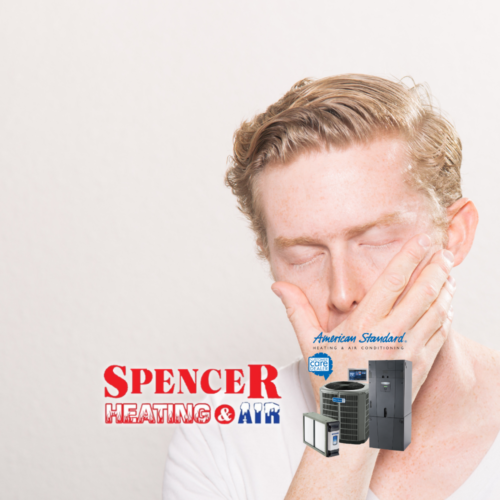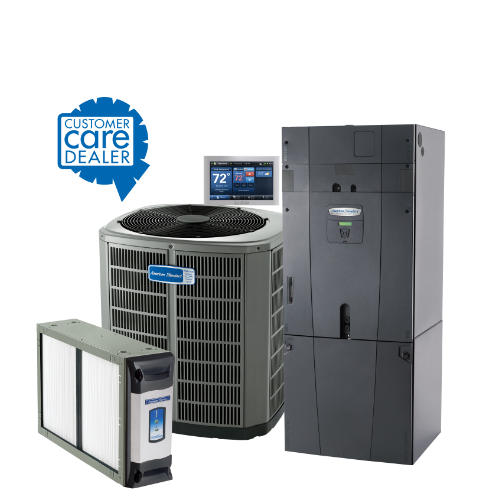What is a myth? Simply put, a myth is a widely held but false belief or idea. There are many myths about the heating and air conditioning industry. This article states nine of those myths and debunks them all.
Myth 1: Get your air conditioning technician from Craigslist.
The internet has provided us with a variety of choices to go to in order to find an HVAC service technician, but beware because not all are qualified. While the Better Business Bureau provides you with information on whether a company is accredited and, if so, a letter grade depending on their company history and practices, other websites are accessible to anyone wanting to post an ad. For example, Craigslist will let anyone post an ad providing their services, not requiring them to verify whether or not they’re truly qualified, licensed and bonded, or have the proper training and experience.
If you decide on a company or individual without having the ability to identify their qualifications and competence, it could end up costing you more ultimately. If the technician doesn’t have the qualifications to properly service your specific air conditioning system, you might end up needing another, more experienced company to correct their mistakes and it could cost you multiple service charges. Hiring someone to work on your home’s HVAC system who is not trained to work on your system could also void your manufacturer’s warranty.
Myth 2: It’s okay to use any type of refrigerant in your air conditioner.
With the government ending the production of R-22, many people are finding the cost of refilling their air conditioner’s refrigerant skyrocketing. It may sound like a simple fix to just use a different and cheaper refrigerant, but if an AC service technician gives you that advice, you probably want to call for a second opinion.
Manufacturers specify the exact refrigerant the equipment is developed for, and before 2010, it was commonly R-22. Regardless of the extreme decline of the production of R-22, those air conditioning systems are still designed for it, and substituting a different refrigerant may not only cause damage to your air conditioning equipment, but it could also void your warranty. A voided warranty could cost you hundreds or thousands more in future parts due to possible damage.
Myth 3: You don’t need routine A/C system maintenance.
A lot of people who aren’t having trouble with their air conditioning system may assume they don’t really need routine maintenance. It’s operating fine, so why use the money on a tune-up, right? Except for the fact that a routine AC tune-up generally costs less than $100 while repairs that might have been prevented could cost you $500. Not to mention, most manufacturers require routine maintenance to continue your warranty, so foregoing a routine tune-up could cause you to lose your warranty, resulting in a large payout if your air conditioner decides to go out on the hottest day of the summer. (link to maintenance page)
Myth 4: Researching the contractor isn’t important.
It’s important that you do your research before deciding on an air conditioning service contractor, especially if you feel a particular company is putting pressure on you. As we mentioned in Myth #1, the internet doesn’t demand a contractor to be qualified to advertise their services. It’s important to know their qualifications and history so you don’t have to worry about paying for the same service multiple times.
Website reviews, referrals from friends, and a great accreditation grade with the Better Business Bureau will all confirm the type of business you will be offering your business to and help you decide if they are right for you. Angie’s List, Google+, and Yelp are all good places to start your research process. Also, don’t be afraid to ask for previous customer referrals.
Myth 5: It costs more to turn your thermostat higher while you’re not at home.
Long-term, it will increase your costs to leave the thermostat at a colder temperature all through the day than to bump it up a few degrees while you’re away. It usually will not take an exorbitant amount of additional energy to get your home comfortable once you enter, depending on the variables of the home.
A programmable smart thermostat (link) allows the temperature to be adjusted from a tablet or smartphone so you can just adjust the temperature back down before arriving home. This decreases your energy over the course of the day, as well as decreasing your cooling bills.
Myth 6: Continuously running ceiling fans will help keep your home cool.
Fans help keep you cool, they don’t really lower the temperature of the home by themselves. In fact, fans (like refrigerators) actually raise the temperature in your home. The motor that is causing your fan to function produces heat, which can push heat into the air in your home. An efficient ceiling fan can help level the temperature of the room and may help to cool air by circulating, but if nobody is beneath the fan to feel cool, all you’re doing is squandering energy and money, especially if the AC is already on. So turn off ceiling fans when there is nobody in the room when more air circulation is unnecessary.
Myth 7: Don’t worry about where the thermostat is installed.
Thermostats use the temperature near it to decide whether it needs to start up the AC to cool your home. Placing a thermostat in your bedroom will only make sure that bedroom cools to the temperature that the thermostat is set to. Once the bedroom is cooled, the AC will go off and the rest of your home will be warmer. If the thermostat is put near a well-lit window or an appliance, it may always read the temperature as being much higher than the home actually is and keep running your AC, increasing your energy bills.
Myth 8: Lowering your thermostat temperature setting will help it cool faster.
Decreasing your air by too much may only make your air conditioning system work longer, it won’t get to a colder temperature any faster. If your thermostat is set on 77, but you really would be more comfortable at 75, then set it to 75 and it will work until it gets to that temperature. Putting the thermostat on 73 won’t make it lower to 75 any faster, and it will cause your system to run long, costing you money and energy.
Myth 9: It’s ok to swap out your air filter annually.
Depending on respiratory or allergy issues for the home’s occupants, and the style of air filter you utilize for your AC, your air filter may need to be replaced as often as every four weeks. Skipping the replacement of the air filter often enough not only causes your AC to work harder and reduce efficiency, but it could also irritate respiratory ailments like common allergy symptoms.
Contact Us
Spencer Heating and Air is in the business of making your home more comfortable. If you are questions about your home’s heating and air conditioning system, or if it needs repairing or replacing, give us a call at 334-887-9020 or email us at [email protected].






